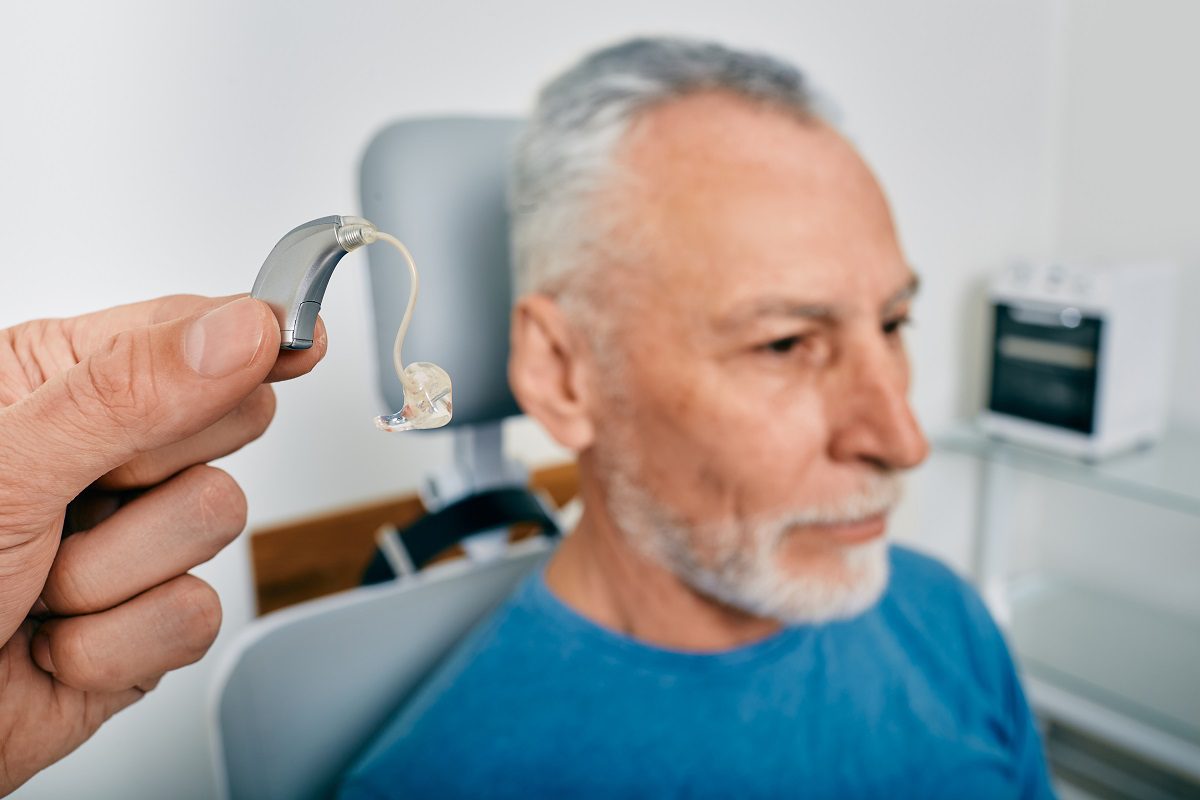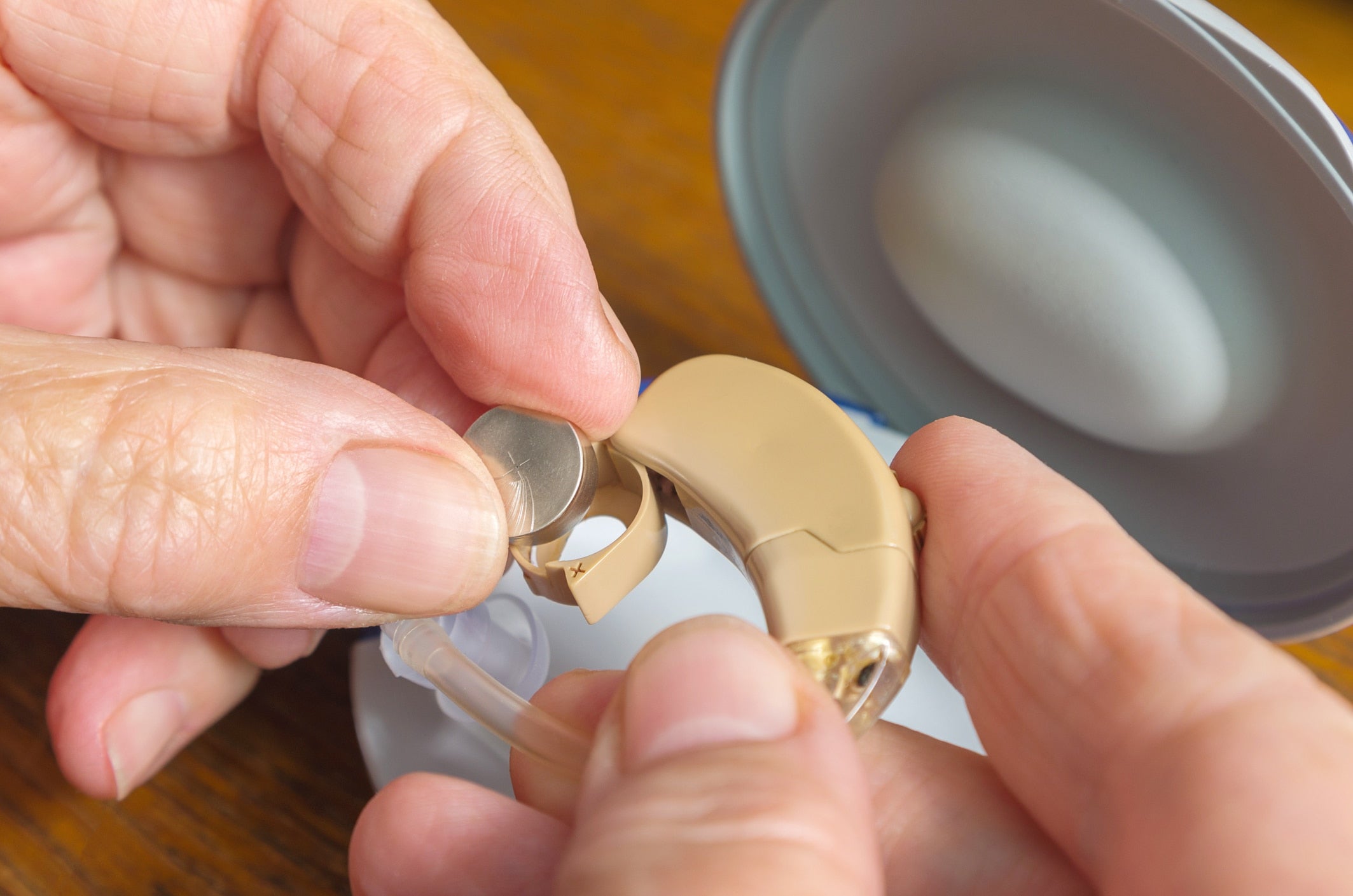In a world full of constant noise—notifications, conversations, traffic, and screens—our ability to truly listen has become a rare skill. For individuals with hearing loss or those adapting to hearing aids, the challenge doubles: it’s not just about hearing the sound but also processing, focusing, and connecting mindfully.
Mindfulness and meditation offer a powerful yet often overlooked tool for better hearing health. Beyond stress relief, these practices can retrain your attention, reduce listening fatigue, and deepen your connection to sound. This article explores how mindfulness enhances hearing, how meditation supports auditory focus, and simple ways to integrate mindful listening into daily life—especially for hearing aid users.
The Connection Between Mindfulness and Hearing
1. Hearing isn’t just about the ears
We often think of hearing as a purely physical process—but it’s actually both physical and mental. Sound waves reach the ear, but it’s the brain that interprets them. When you’re distracted, anxious, or tired, your brain’s ability to process sound decreases. Mindfulness strengthens the brain’s attention system, allowing you to stay more present and focused on what you hear.
2. Stress directly affects listening
When you’re stressed, your body’s “fight or flight” response increases muscle tension and narrows attention. This can make it harder to concentrate on speech, especially in noisy environments. By reducing stress through mindfulness, you relax both the body and the mind—improving your capacity to listen calmly and clearly.
3. Awareness sharpens perception
Mindfulness teaches you to pay attention intentionally. Over time, you begin to notice subtle differences in tone, volume, and emotional nuance. For people with hearing loss, this awareness helps fill in missing pieces of conversation and strengthens social confidence.
How Meditation Supports Better Listening
Meditation isn’t just about sitting silently—it’s about training the mind to focus, observe, and respond with awareness rather than reaction. This directly supports hearing in several ways:
1. Improving auditory attention
Mindfulness meditation strengthens the brain’s prefrontal cortex—the area responsible for focus. As you learn to anchor your attention on a sound, like your breath or ambient noise, you become better at tuning in to voices and tuning out distractions.
2. Enhancing working memory
Many studies show that meditation improves short-term memory and mental clarity. In conversation, this helps you remember what was just said, even when background noise competes for your attention.
3. Reducing listening fatigue
Constantly straining to hear can be exhausting. Meditation lowers overall cognitive load by calming the nervous system and improving concentration efficiency. The result: less effort, more energy, and greater ease in communication.
4. Supporting emotional balance
Frustration and embarrassment from mishearing are common among people with hearing loss. Regular meditation helps you regulate emotional responses, so you can stay calm, patient, and grounded—even when communication isn’t perfect.
Mindful Listening: Bringing Awareness to Everyday Sound
Mindful listening is a specific practice within mindfulness that focuses on being fully present with sound. Here’s how to try it:
Step 1. Pause and notice
Take a moment each day to simply listen. It might be the hum of your refrigerator, the wind outside, or your child’s laughter. Don’t label or judge the sound—just observe it.
Step 2. Focus your attention
Choose one sound and follow it for several seconds. Notice when your mind drifts, then gently bring it back. Over time, this strengthens your auditory focus—like training a muscle.
Step 3. Engage your senses fully
While listening, notice how sound interacts with your body. Do certain noises create tension or calm? Awareness of these sensations helps you regulate your environment and your emotions.
Step 4. Practice mindful conversations
During conversations, apply mindfulness principles:
-
Maintain eye contact.
-
Pause before responding.
-
Avoid planning your reply while the other person is still talking.
-
If you mishear something, calmly ask for repetition.
This turns listening from a passive activity into an intentional act of connection.
How Hearing Aid Users Benefit from Mindful Practice
For those using hearing aids, mindfulness can dramatically enhance the experience.
1. Adjusting to new sounds
When you first start using hearing aids, your brain may feel overwhelmed by sounds it hasn’t processed in years. Mindfulness helps you stay patient and curious—observing new noises without frustration.
2. Managing background noise
Mindful awareness helps you notice when your attention drifts or when background noise pulls focus. Instead of reacting automatically, you can redirect attention toward the person speaking.
3. Staying calm during communication challenges
Even with advanced technology, misunderstandings happen. Mindfulness teaches acceptance and resilience—helping you let go of self-consciousness and return to the conversation with calm presence.
4. Deepening appreciation of sound
When you listen mindfully, even ordinary sounds feel rich and layered—the rustle of leaves, your partner’s voice, music playing softly in the background. This renewed connection to sound can make hearing aids feel less clinical and more life-enhancing.
Guided Meditation: A Simple Daily Practice
Try this short mindfulness exercise, ideal for morning or evening:
-
Find a quiet spot. Sit comfortably, close your eyes if you wish.
-
Take a few slow breaths. Feel your chest rise and fall.
-
Begin to listen. Notice the sounds around you—near and far, loud and soft. Don’t label them.
-
Focus on one sound. It could be your breath, a ticking clock, or faint outdoor noises. Stay with it.
-
If your mind wanders, return to sound. Gently bring attention back, without judgment.
-
End with gratitude. Thank yourself for taking a moment to listen—to the world, and to your own calm.
Over time, this exercise retrains your brain to process sound more efficiently and calmly, complementing the work your hearing aids do physically.
Mindfulness Beyond Meditation
You don’t need to sit cross-legged to be mindful. Try weaving listening awareness into everyday routines:
-
Morning routine: Notice the sounds of water, your toothbrush, the hum of the coffee maker.
-
Commute: Instead of tuning out, observe the rhythm of city noise or the quiet between stops.
-
Family time: Practice full attention when your loved one speaks. Put down your phone. Listen fully.
-
Before bed: End the day with two minutes of quiet awareness, noticing how sound fades into silence.
These micro-practices create a habit of mindful hearing that strengthens concentration and reduces stress throughout the day.
Scientific Insight: The Mind-Hearing Connection
Neuroscience supports the connection between mindfulness and better hearing:
-
Brain plasticity: Meditation enhances neural flexibility, allowing your brain to adapt better to hearing aids and interpret new sound patterns.
-
Attention control: Mindfulness activates brain regions linked to sustained attention and auditory filtering.
-
Stress hormones: Regular meditation lowers cortisol, which can improve blood flow to auditory regions and reduce tinnitus severity in some individuals.
-
Cognitive resilience: By sharpening focus and emotional regulation, meditation supports long-term auditory processing and memory.
In short: mindfulness strengthens the same brain systems that hearing aids rely on to work effectively.
Building a Mindful Hearing Routine
Here’s how to get started:
-
Start small: Begin with 3–5 minutes of meditation daily.
-
Pair with existing habits: Try mindful listening while drinking coffee or walking outside.
-
Use apps if helpful: Many meditation apps offer short, sound-based sessions ideal for auditory awareness.
-
Track your progress: Notice how conversations feel easier and focus lasts longer.
-
Stay patient: Like hearing aid adaptation, mindfulness benefits grow gradually—but they last.
The Bigger Picture: Hearing with Presence
Mindful listening isn’t just about improving hearing—it’s about improving connection.
When you listen with your full attention, people feel seen and valued. When you slow down and breathe, sounds become richer. And when you approach hearing as a partnership between ear, mind, and heart, life feels quieter, calmer, and more alive.
For those using hearing aids, mindfulness bridges technology and humanity. It reminds you that better hearing isn’t just about devices—it’s about awareness, balance, and joy in every sound.
Takeaway
Meditation can’t replace hearing aids, but it can make them work better. It helps reduce listening fatigue, improve focus, and bring calm to the noise of daily life. More importantly, it helps you reconnect—not just to sound, but to the people and world around you.
By combining mindful practice with modern hearing technology, you cultivate the ultimate form of hearing health: listening with clarity, calm, and compassion.






Share:
Parenting with Hearing Aids: Balancing Family Life and Hearing Health
Can You Claim OTC Hearing Aids on Insurance?